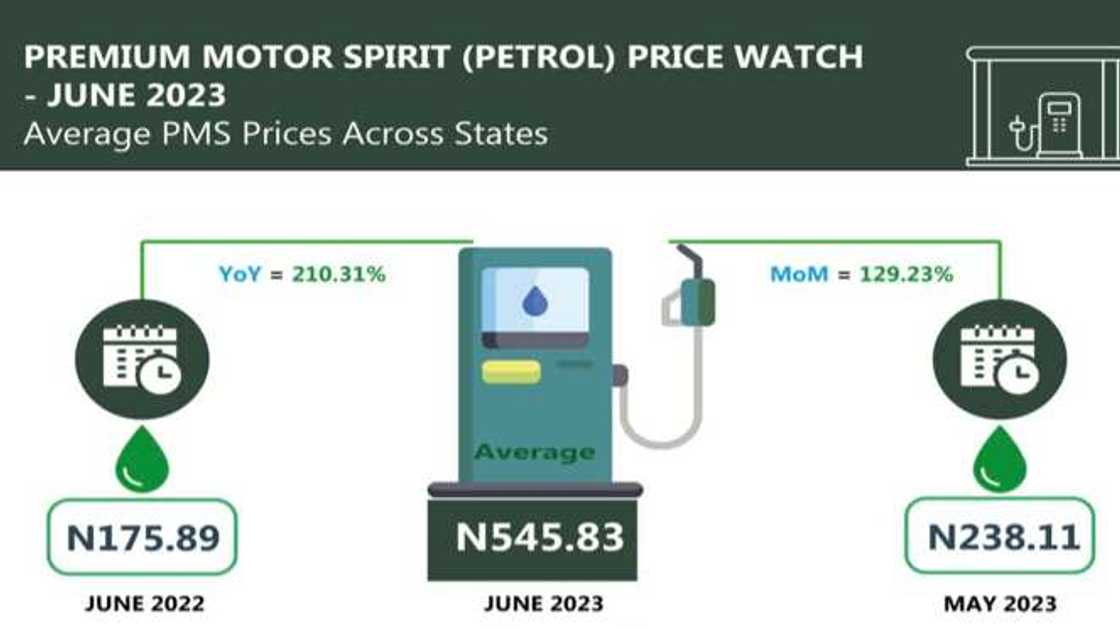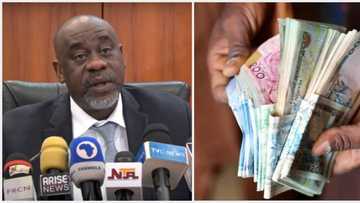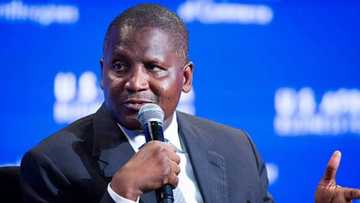Northern States Worst Hit by Petrol Subsidy Removal New Data Shows
- NBS has released new data showing the states in Nigeria with the highest and lowest average cost of petrol
- This is the first comprehensive report since the removal of petrol subsidy by President Bola Tinubu
- Analysis shows that northern states residents were the worst hit led by Taraba, Yobe and Kano
The National Bureau of Statistics has announced that the average price for a litre of Premium Motor Spirit, popularly known as petrol increased to N545.83 in June 2023.
This is a 210.31% increase when compared to N175.89 per litre average price Nigerians paid in June of 2022.
NBS stated this in its latest PMS Price Watch Report published on its website and obtained by Legit.ng.

Source: Facebook
The significant increase in petrol prices is due to the removal of the petrol subsidy, which was first announced by President Bola Tinubu during his inaugural speech.

Read also
CBN declares highest profit in 5 years as naira exchange rate gets closer to N1000 per dollar
PAY ATTENTION: Join Legit.ng Telegram channel! Never miss important updates!
States with highest and lowest petrol price in July 2023
Furthermore, NBS provided a breakdown of states analysis and it showed that Taraba state residents paid N562.86 per litre for petrol the highest in the country.
This is followed by another northern state, Yobe with N562.31 and Kano with N561.82.
On the flip side there was relatively ease as Anambra recorded the lowest average retail price with N534.44.
Ebonyi state followed with N535.00 and Oyo with N537.43.
In addition, analysis by zone showed that the North-East recorded the highest average retail price in June 2023 with N557.03, while the South-West had the lowest with N539.36.
Top 10 states with highest petrol price in Nigeria
- Taraba - N562.86
- Yobe - N562.31
- Kano - N561.82
- Gombe - N560.83
- Borno - N557.14
- Jigawa - N556.67
- Abia - N552.73
- Adamawa - N551.25
- Kogi - N550.83
- Kaduna - N549.53
- Zamfara - N549.09

Read also
Aliko Dangote loses over N480bn in 24hrs, slips in battle to reclaim Africa's richest man title
"He only reduced, not remove": Rewane speaks on Tinubu's fuel subsidy decision
Meanwhile in another report, Bismarck Rewane, a prominent Nigerian economist, has stated that the fuel subsidy in Nigeria has not been completely removed.
He noted that President Bola Tinubu only implemented a reduction in the subsidy to keep fuel prices lower than they would have been without any subsidy.
Rewane also called for comprehensive reforms in various institutions, including monetary, fiscal, justice, and security, to fully benefit from democracy.
Source: Legit.ng


